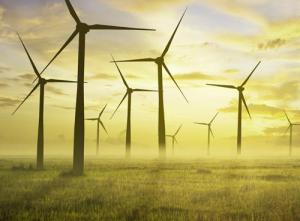In the ESG Era
Steve Mitnick is President of Lines Up, Inc., Executive Editor of Public Utilities Fortnightly, and co-author of a new book, “Front Lines to Power Lines,” and before that the author of “Women Leading Utilities, the Pioneers and Path to Today and Tomorrow,” “Lewis Latimer, the First Hidden Figure,” and “Lines Down: How We Pay, Use, Value Grid Electricity Amid the Storm.” Mitnick was formerly an expert witness in proceedings before the utility regulatory commissions of six states, the District of Columbia, the Federal Energy Regulatory Commission, and in Canada, and a faculty member at Georgetown University teaching undergraduate microeconomics, macroeconomics and statistics.
I haven't ever seen anything like this.

Regulated utilities have always endeavored to grasp what the public and its governmental representatives want and to respond accordingly. Some utilities do this with more skill than others, surely. In my experience, over a forty-three-year career, those that have been the most responsive to the general will, on environmental issues for instance, tend to be the most successful financially.
But this, what is going on now, is unprecedented. In what could be aptly called the ESG Era, utilities are being scored for their ethical performance, quite rigorously, quite comprehensively, by highly influential organizations. And these scores are directly driving the financial community to invest significantly more in the high scorers and significantly less in the low scorers.
As a result, utilities are responding with real urgency. They're accelerating and amplifying programs that will enhance their profiles, and better their scores. And they're taking every opportunity to demonstrate their tangible progress to date and to detail their plans to do much more in coming years.
This issue, ESG, is so big that the PUF team decided we should publish a special issue of Public Utilities Fortnightly on it. With the support of co-sponsors Moody's Investors Service, Dentons, CPS Energy, Tri-State G&T, and Guidehouse, and with the participation of many utility execs, you are holding the ESG Stories special issue in your hands (or staring at it on your screen).
Want to hear what San Diego Gas and Electric CEO Caroline Winn, NW Natural CEO David Anderson, Eversource VPs Catherine Finneran and Jeff Kotkin, CPS Energy CEO Paula Gold-Williams, and Tri-State G&T CEO Duane Highley, for starters, have to say about their companies' programs to excel with respect to ESG metrics? It's all here in this special issue along the perspectives of several other execs across the industry. Plus, the expert respected views of Morgan Stanley and Moody's on how ESG will drive and is already driving utility strategies.
Our industry was a natural target of ESG scorers and investors. Electric and natural gas utility service historically causes the emission of climate change gases. That we have reduced emissions so considerably this century has made a moderate impression on ESG investing at best. The voices that are the loudest of those focused on ESG, demand and expect net zero emissions or nearly so in a timeframe measured in years rather than decades.
Therefore, the dramatic emission cuts both underway and planned, as announced by our industry over the past twenty-four months or so, have the potential to dramatically affect our ESG scores. There may be few industries across our economy and indeed across the global economy that will perform as well over the next decade against the E environmental metrics of ESG.
The utilities industry is already a strong performer against the S social metrics and G governance metrics of ESG. In particular, though there is certainly enormous room for further improvement, utilities have relatively diverse workforces — including at senior levels and boards of directors — and have a proud track record of fostering diversity among its suppliers.
The breadth of ESG scoring is increasing as organizations throughout the financial community compete fiercely for the attention and the funds of course of socially conscious investors. Don't be surprised when ESG expands into how we set utility rates and bills. Because some of those folks who are scoring our utilities are considering our impact on utility customers with limited financial means. Shall the ESG scores also consider how utilities and utility regulators maintain and build upon present levels of utility service resilience?
This all means that in the ESG Era, these questions concern us all. Not long ago, ESG was primarily a matter for the financial and investor relations departments of utilities. Now it's clear that ESG is a matter for all of us in utility regulation and policy to understand and to integrate into our vision of the industry's transformation and future.
ESG articles:
- ESG Powerfully — Electric utilities in the United States like American Electric Power, Arizona Public Service, Evergy, Northwestern Energy, PPL Corporation, WEC Energy Group, and Xcel Energy have quite decisively accelerated their progress on ESG priorities, through investment, innovation, and a clear intent to be recognized as leaders in ESG at the same time that they continue to deliver safe, reliable, and affordable utility service to the communities that depend upon them, powerfully.
- ESG Naturally — How do today's natural gas utilities find the right balance, rigorously addressing ESG priorities while continuing to meet the needs of the communities they serve via gas utility service? Leaders from CenterPoint Energy, Eversource, NiSource, NW Natural, and Sempra Energy (both at San Diego Gas & Electric and at the parent) take on directly how they are managing that balance.
- ESG Publicly — Here you will find conversations with CPS Energy CEO Paula Gold-Williams and Tri-State Generation and Transmission Association CEO Duane Highly. Moderated by Dentons' Clint Vince, they explain what is happening with ESG in their large service territories.


